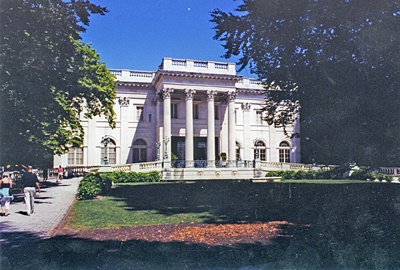All Nonfiction
- Bullying
- Books
- Academic
- Author Interviews
- Celebrity interviews
- College Articles
- College Essays
- Educator of the Year
- Heroes
- Interviews
- Memoir
- Personal Experience
- Sports
- Travel & Culture
All Opinions
- Bullying
- Current Events / Politics
- Discrimination
- Drugs / Alcohol / Smoking
- Entertainment / Celebrities
- Environment
- Love / Relationships
- Movies / Music / TV
- Pop Culture / Trends
- School / College
- Social Issues / Civics
- Spirituality / Religion
- Sports / Hobbies
All Hot Topics
- Bullying
- Community Service
- Environment
- Health
- Letters to the Editor
- Pride & Prejudice
- What Matters
- Back
Summer Guide
- Program Links
- Program Reviews
- Back
College Guide
- College Links
- College Reviews
- College Essays
- College Articles
- Back
Foreign Born = Second-Class Citizen MAG
Walls did not divide Sparks Elementary. It was built 20 years ago with the idea of “pods” in mind. A whole grade would share a large space, each class separated by only a single wall.
Despite the lack of physical divisions, there was separation at Sparks. There were three “regular” classes with instruction in English and one bilingual class. Up until third grade, I was in the bilingual class. One day, my dad asked if I would like to be in the regular class the next year. I was curious and decided to venture out into that part of the pod.
I was beginning to learn about the differences in ethnicity. Since all the kids in my bilingual class spoke Spanish, I figured they were all from Mexico, like me. Later, I learned some were from South and Central America and Spain. I could not figure out the ethnic identity of those in the “regular” class. Some looked like me but did not speak Spanish. I was confused about what they were and where they came from.
One day, we were learning about the United States government. My teacher tested our knowledge by asking us the eligibility criteria to be president.
“Does a person have to go to school in order to be president?”
“No!” the class responded unanimously. I was bewildered; how could we let an uneducated person be president?
“Can the president be a woman?”
“Um, no,” said someone.
“Actually, a woman can be,” Ms. Watts corrected.
One kid raised his hand and asked, “Why has there never been a girl president?” Ms. Watts paused a moment, then said, “Well, a woman has just never been elected.” She went on, “At least how old does the president have to be?”
“Thirty-five years old.”
“Where does a president have to be born?”
“Here!” they shouted.
“Where is here? School?”
“In the U.S.A.!”
“Yes! Good job. Well, is anyone interested in being the president?”
Half the class enthusiastically raised their hands.
“Was anyone born outside the United States?” Although I had been one of the students who raised my hand when Ms. Watts asked who would like to be president, I was now the only person raising my hand.
“Where were you born, Susana?”
“Mexico City.”
“That’s nice,” she said, and the lesson continued, but my mind stayed on the realization that I could never be president. It stayed with me through music. It stayed with me during gym. It stayed with me during reading time. It stayed with me throughout middle school.
It was still on my mind as a senior when I walked into government class. Peter had brought a socialist worker’s newsletter and in it I read about a man running for president, even though he was born in a different country. The newspaper stated that they run candidates who are not even eligible because they are good candidates. It is better to vote for them rather than the lesser of two evils.
The suggestion that a foreign-born person should be able to become president was made in class, and a few people agreed. A few didn’t.
“No, if a person from another country becomes president, they might be a dictator! Look at Stalin or Hitler. Do you really want someone like that running your country? Do you want a totalitarian government?”
“But if he were like Stalin or Hitler, why would people elect him? Even if he were elected, he could be impeached. What about the balance of powers in the government?”
I was horrified at this xenophobia. Do people honestly think that a naturalized citizen, like me, would become a dictator? Being born in this country does not make you any more capable of being the commander-in-chief.
“Why can’t they go back to their country and be president?”
I came to America as a baby. Mexico is my native land, but America is my home. If anyone disagrees with that, they are living in an ignorant bubble. I’m not too fond of the identical malls on every corner, or the gap between the rich and poor, or even the President at times, yet I believe this country has potential.
It is about time we elect a president who actually represents this country. Quite frankly, the economic and social elites are not representative of our America. They are the minority, not youth, women, Blacks, lower class, or foreign-born citizens. A diverse country should be able to elect someone who actually represents the country.


10 articles 0 photos 52 comments
Favorite Quote:
"Never do anything that you wouldn't want to explain to the paramedics."-Unknown Author
I always thought that was the dumbest rule we had. Mussolini (i'm probably spelling it wrong) was Italian, but he became a dictator.
The stupidity of this "born only in America" law amazes me. It should be outvoted. SOON.
Great article! Our sentiments exactly.